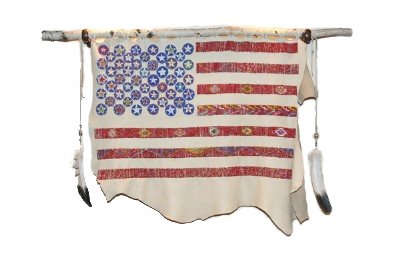Cleburne Times-Review Column for 18 June, 2006
And now the cry of Israelites has reached me, and I have seen the way the Egyptians are oppressing them. So now, go. I am sending you to Pharaoh to bring my people the Israelites out of Egypt.”
--Exodus 3:9-10
Abraham Lincoln believed that the Civil War was the blood debt the United States had to pay to atone for the original sin (for it is enshrined in the Constitution) of slavery. If true, then September 17, 1862, holds particular significance as the bloodiest single day in all the history of the nation. On that day, near Sharpsburg, Maryland, near Antietam Creek, 22,720 Americans were killed, wounded, captured or lost at the hands of other Americans. By comparison, US casualties at Omaha and Utah Beaches on June 6, 1944, amounted to only 2,510. The Union actually suffered more than the Confederacy, but Robert E. Lee’s first invasion of the North was thwarted and that was enough, enough for Lincoln to sign the Emancipation Proclamation and change not only the course of history for this country, but for all the world. It read, in part, “That on the 1st day of January, A.D. 1863, all persons held as slaves within any State or designated part of a State the people whereof shall then be in rebellion against the United States shall be then, thenceforward, and forever free; and the executive government of the United States, including the military and naval authority thereof, will recognize and maintain the freedom of such persons and will do no act or acts to repress such persons, or any of them, in any efforts they may make for their actual freedom,” and “upon this act, sincerely believed to be an act of justice, warranted by the Constitution upon military necessity, I invoke the considerate judgment of mankind and the gracious favor of Almighty God.” Cynics pointed out, then and now, that the Emancipation was more the work of Lincoln the shrewd and calculating politician than “Father Abraham,” as he would later be lionized. The act was of dubious Constitutionality and actually freed very few slaves, since it only applied to regions of the country not then under Federal control. Slavery was explicitly protected in the precariously loyal border states of Kentucky, Delaware, West Virginia and (ironically) Maryland. But the Proclamation served a larger goal; it transformed the moral basis of the war from a dry constitutional question about the legality of secession to a crusade against human bondage. Decades later, Booker T. Washington, then only a child, would write, “Some man who seemed to be a stranger (a United States officer, I presume) made a little speech and then read a rather long paper -- the Emancipation Proclamation, I think. After the reading we were told that we were all free, and could go when and where we pleased. My mother, who was standing by my side, leaned over and kissed her children, while tears of joy ran down her cheeks. She explained to us what it all meant, that this was the day for which she had been so long praying, but fearing that she would never live to see.” Aristrocratic opinion in Europe, which had always preferred their ideological cousins in feudalism, the “Southron gentry” to the vulgar democratic masses of the North, was swamped by liberal voices supporting Lincoln and Emancipation. There would be no recognition of the Confederacy by England or France.
In those days, in most of war-torn America, news travelled approximately as fast a horse and so it was not until June 19, 1865, nearly three years later, that Union General Gordon Granger read the Proclamation from the balcony of Ashton Villa on Galveston Island, belatedly freeing the 250,000 slaves in the state. “The people of Texas are informed that, in accordance with a proclamation from the Executive of the United States, all slaves are free,” Granger said. “This involves an absolute equality of personal rights and rights of property between former masters and slaves, and the connection heretofore existing between them becomes that between employer and hired labor. The freedmen are advised to remain quietly at their present homes and work for wages. They are informed that they will not be allowed to collect at military posts and that they will not be supported in idleness either there or elsewhere.” The first known celebration of that day came two years later, in Austin in 1867 under the auspices of the Freedmen’s Bureau. Ever since, in Texas and in other parts of the country where African-Americans from Texas have settled, Juneteenth is an occasion for joy and pride. Just as the Israelites’ escape from Egypt was not the end of their sufferings, however, the mere reading of the Emancipation did not, in fact, bring about the “absolute equality” General Granger referred to. Indeed, the General’s last two sentences, advising Freedmen to “remain quietly at their present homes,” and warning that “they will not be supported in idleness,” hint ominously at what was to come. But the struggle that was to come following that first Juneteenth, and which continues until this one, 141 years later, should not deter us from rejoicing, in the words of “Lift Ev’ry Voice and Sing,” the African-American National Anthem, “Stony the road we trod, Bitter the chastening rod,Felt in the days when hope unborn had died; Yet with a steady beat, Have not our weary feet Come to the place for which our fathers sighed? We have come over a way that with tears have been watered, We have come, treading our path through the blood of the slaughtered, Out from the gloomy past, Till now we stand at last Where the white gleam of our bright star is cast.”
Labels: Column


0 Comments:
Post a Comment
<< Home